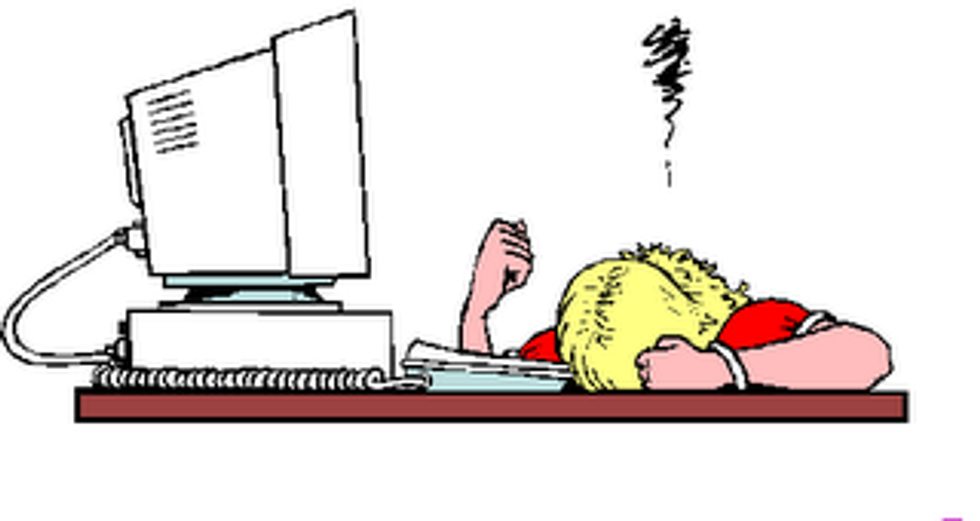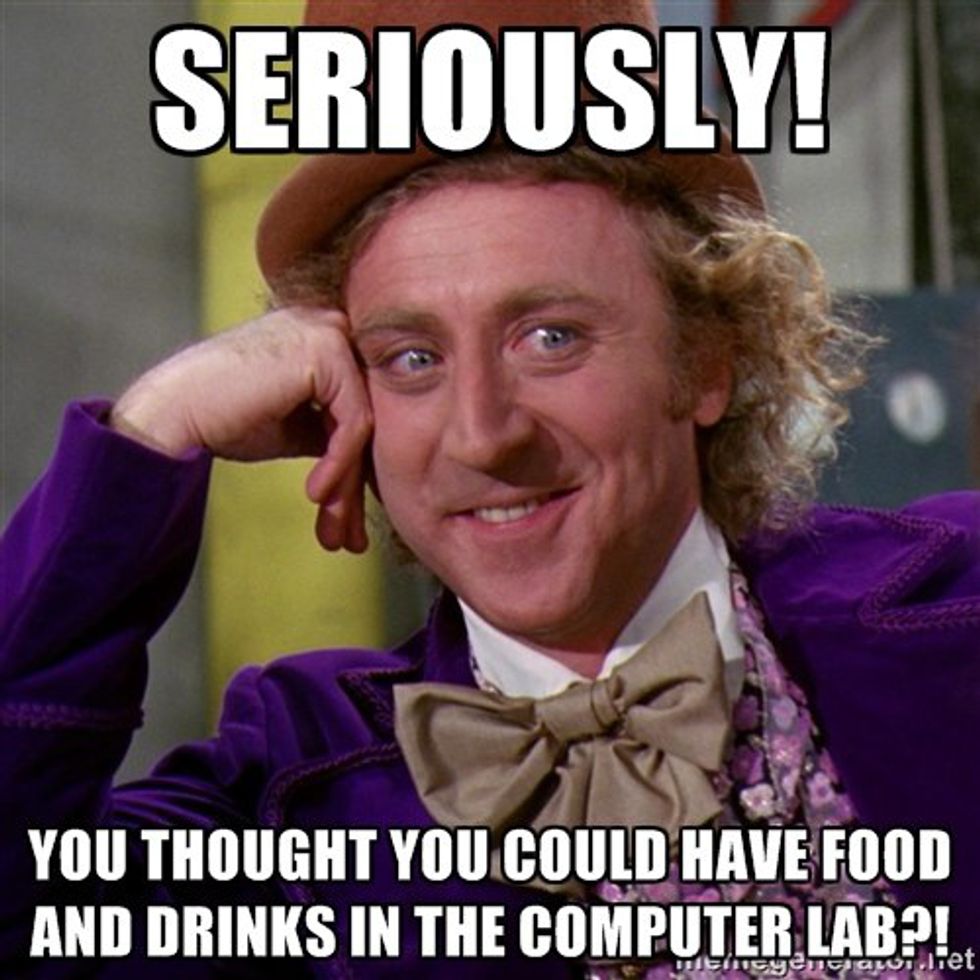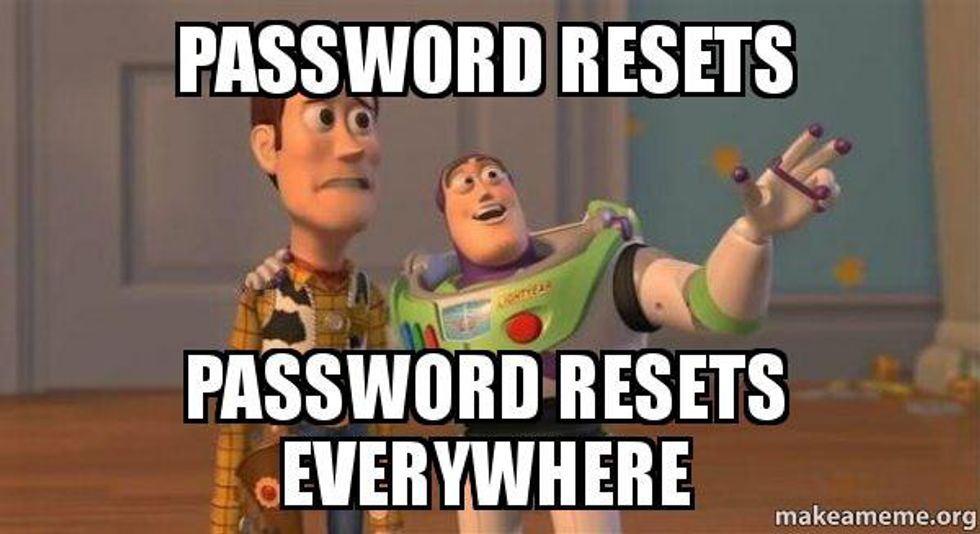Everyone struggles with technology. It can be an evil thing if you have written an entire fifteen page paper without saving it. One malfunction and its gone! We all have been told, "Save your work!" repeatedly by parents, teachers and professors, but how often do we really listen until we face palm ourselves when our entire piece of work has been erased from existence.
The struggles of technology are all too real, here's reasons why and how to avoid future feuds with your computer counterpart.
1. SAVE YOUR WORK!
Like I had mentioned, technology can have a mind of its own and decide, "Nope I'm just going to malfunction at your most inconvenient time."
2. Keep A Backup of Your Files
You can save things as much as you'd like, but when your computer decides to delete something you thought was safely tucked away in the files of the computer, keep a separate back up drive for your computer as an emergency tool to recover any lost items.
3. Organize Your Files
Don't blame the computer for deleting something when it may actually just be residing in the depths of a junk folder. Organize by date, color, event, and so on so you can surf seamlessly through your files!
4. Application Cooperation
Sometimes applications don't always work well with us. As a Graphic Design major, I completely understand this difficulty. Sometimes the application needs to be continually re-launched, the computer needs to restart or something unknown to man has made the computer or application become your number one enemy.
5. Autocorrect
When you pull off writing a bomb paper, hand it in and you're flying high feeling confident... Then you actually proof read the paper and find small but crucial word errors. You look back and think, "Did I really type 'orgasm' instead of 'organism'?!" There's nothing to do but to hope your professor has a sense of humor, and probably proof read your next paper before handing it in.
6. Computer Illiteracy
I may work rigorously on the computer a lot for homework and artwork along with some time Netflixing, but it doesn't mean I know everything about my computer. There are still days where I am enlightened by functions I can do on my computer I had never fathomed. These electronics are complicated creatures!
7. Don't Overload Your Computer
This is where a back up drive comes in handy again. It can store things that are taking up too much space on the computer, which helps the computer function more easily because it's not carrying the load of 300 GB of your pictures or music. And you should probably not keep 20 tabs open at once. As much as we think we can multitask well, let's be honest with ourselves and make our computers' lives a little easier.
8. Mindful Downloading
Please please please don't download something off of the internet when you don't know what exactly it is or where it's coming from. Viruses are the death of any computer! Don't get your computer sick by letting some foreign file invade it. Usually downloading an anti-virus software is extremely helpful, but do your research! Some anti-virus software don't help as much as you think they do.
9. Don't Mix Food and Technology
Don't be writing a paper or doing homework and have a snack nearby or a drink open nearby. It's best to save the tears of a spilled drink and a dead computer by keeping the two things separate. Besides, it keeps your desk clean! (In theory)
10. Keep Your Computer Charged
The last thing you need is to go into class, ready to type notes, take an online test or pull up some power points, and your computer dies. To avoid that, obviously keep it charged. But what also helps is turning down the computer brightness and keeping the applications that are open to a minimum to save battery. And having your computer run through its whole battery life is actually healthy for the computer, but just make sure it's at a convenient time for you.
11. Password Protected
Put a password on your computer. You may trust all of your friends on your computer, there's still a chance someone unwanted could get into your computer and steal information. Don't use the same password for everything! I understand completely that it's hard to remember your passwords, but at least change up the wording, letters, numbers, symbols, caps lock and lower case. Although tempting, don't write down your passwords in obvious places either.
In the end, a healthy relationship between you and your computer is crucial! You've only got one. You might as well make it last!























